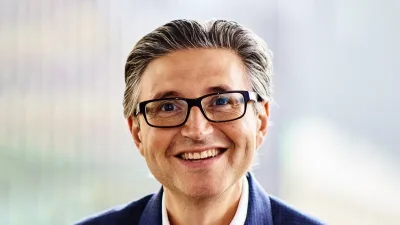Funds management game is worth the risk for IOOF
From a friendly society tradition, IOOF funds management operation has emerged as a business in its own right.
From a friendly society tradition, IOOF funds management operation has emerged as a business in its own right. John Wilkinson looks at the implications of the shift in strategy and the changing dynamics of its investment process.
When Money Management announced the winners of the friendly society bonds category of the annual fund manager awards earlier this year, IOOF Funds Management group general manager investments Tony Hodges gave a sigh of relief.
It hadn't come in the top three. He was relieved that the Victorian friendly society was moving away from its historic roots as a pro-vider of friendly society bonds.
Hodges was more than happy coming second to Colonial First State in the Allocated Pensions and Annuities section, proudly pointing out that it was a sign for the fund manager's future.
IOOF Funds Management has been around since 1990, but had been a fund management arm within the friendly society. Its role was to provide funds management for existing members whose money was tied up mainly within friendly society bonds.
This financial year the funds management business is a separate en-tity that will have its own financial reporting stream in the annual accounts.
"We have now become very concerned as to how we employ our capital and get a return on equity," Hodges says.
"IOOF's funds management operation is a separate unit and we have to add value to the parent entity."
Hodges admits everything is now benchmarked. "We have to add value at all levels."
The transition started in the early nineties when the funds manage-ment division looked at how it could benefit from the emerging super-annuation boom.
The first step was to set up a raft of PSTs covering a range of areas such as Australian equities, cash and property. This has been fol-lowed by the IOOF Master Fund which includes managers like BT, Colo-nial First State and Mercury as well as Hodges' funds management team.
"We set our benchmarks in the wholesale market for product range, but have concentrated in selling in the retail market," Hodges says.
Entering the retail market as a fund manager hasn't been easy. Hodges admits there have been perception problems.
"Our big limitation has been credibility of being seen as a fund man-ger and not just part of the friendly society, which is what we were in the past," he says.
"It is not helped by the fact that none of our contemporaries (in the friendly society movement) have separate fund management businesses."
Being a late entry in the funds management market has produced sav-ings, especially in technology, Hodges says.
"We only moved to a proprietary system in 1990 and this meant we could design a system for today's market."
Despite the internal moves, IOOF Funds Management hasn't changed its investment style. It is still an active manager and still has the same formal structures in place as when Money Management last visited the team two years ago.
The difference today is the handling of risk. Two years ago, risk management was ultra-conservative across the board. It had to be. IOOF members wanted their capital preserved and sought a guaranteed return.
Newer products like the master fund have meant that investors coming to IOOF have a different approach to risk. They are looking for re-turns rather than capital guaranteed, Hodges says.
"Risk is now applied differently and we have to understand what in-vestors' objectives are," he says. "Some portfolios will have a lower risk profile to match the investor's expectations of IOOF."
The change is reflected in the IOOF marketing slogans. In the eight-ies it was: "We won't take risks with your money". Today the slogan is: "Making your money work".
This has meant the funds management operation has become the flagship of the friendly society. Especially as the branch offices have been rebranded with the Bendigo Bank banner after the building society deal two months ago. The closer links to Bendigo Bank have given the funds management operation an instant, well-respected distribution base.
Bendigo, through its community banking developments, has become the bank the people love. This has opened doors for IOOF.
The friendly society's funds management operation recognises where its future revenue base will come from.
In the past, IOOF had an average customer age of 65 with a policy size of $15,000. Today, the master fund has seen that average cus-tomer age fall to 45 and the average policy size leap to $60,000.
Hodges says the fund manager has become better at retaining its cus-tomer base. In the past, 10-year bond investors took their money out at the end of the period as they believed there were no alternative investment choices within the society. Hodges says that, with the ar-rival of the master fund, these customers are now offered an invest-ment choice to suit their requirements.
The initiative has slowed the problem plaguing all friendly societies in the nineties - considerable outflows. Hodges says IOOF is starting to see the inflow/outflow situation turn positive for the first time in about 10 years.
This has also been reflected in ASSIRT's inflow figures for master funds with IOOF now coming in the top 10, Hodges says. IOOF Funds Management now has $2.5 billion under management.
Hodges attributes part of that success to the product being well priced. In the future, pressure from investors will force MERs to be more competitive.
IOOF will need to meet market expectations for products if it wants to remain competitive in the funds management area.
This means the master fund will eventually take on the mantle of a wrap account. Hodges says IOOF will produce a non-superannuation product by the end of this year but, he is quick to point out, al-ready offers a back-office administration service for advisers.
"A wrap account is simply putting all your products together in one package and the adviser outsourcing the head office function," he says.
Whatever products are developed, Hodges says they all will still have to pass his simple test.
"When we are developing a product, I always ask the staff would they put their money in it? If the answer is no, then how can we sell it to investors?" he asks.
Recommended for you
Platinum Asset Management and VanEck have both announced name changes to multiple of their ETFs to clarify their complexity.
Active ETFs are gaining traction in Asia-Pacific as wealth managers seek to blend the low-cost fees of passive with active management.
Betashares has extended its partnership with platform AMP North to create a targeted geared retirement series utilising internally geared ETFs.
Global X’s third gold-focused ETF in Australia has hit the ASX for financial advisers and investors seeking an alternative way to access the commodity.














